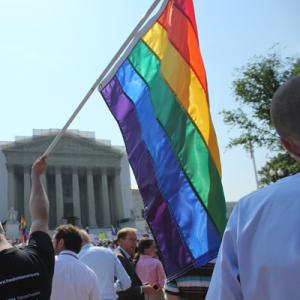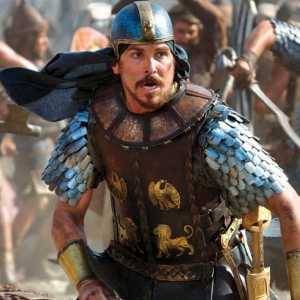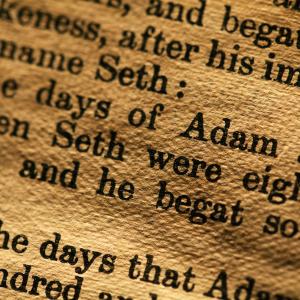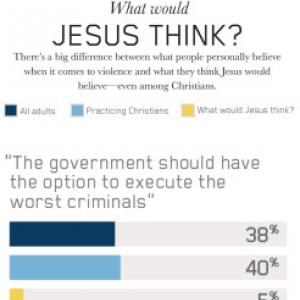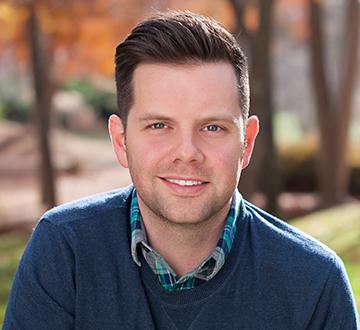
Jonathan Merritt is senior columnist for Religion News Service and has published more than 1,000 articles in respected outlets such as USA Today,The Atlantic, National Journal, Christianity Today, The Washington Post, and CNN.com. He is author of Jesus is Better Than You Imagined and A Faith of Our Own: Following Jesus Beyond the Culture Wars. His first book, Green Like God: Unlocking the Divine Plan for Our Planet, was called "a must-read for churchgoers" by Publisher's Weekly.
As a respected Christian voice, Jonathan regularly contributes commentary to television, print, and radio news outlets. Jonathan has been interviewed by ABC World News, NPR, CNN, PBS,Fox News, Slate, Politico, and The New York Times. He serves on the advisory board for Religion News Service, America's largest provider of news about religion and spirituality.
Jonathan first entered the public eye when a classroom epiphany prompted him to organize a national coalition of Christian leaders who care about the creation. Since then, he's been on the front lines of pressing cultural conversations from poverty to orphan care. He is a member of the national board of directors for Bethany Christian Services, America's largest adoption agency. Outreach magazine recently named Jonathan one of 30 influencers reshaping Christian leadership.
Jonathan has become a sought after speaker by colleges, seminaries, churches and conferences on cultural and religious issues. He holds a Master of Divinity from Southeastern Baptist Theological Seminary and a Master of Theology from Emory University’s Candler School of Theology.
Jonathan occasionally utilizes a research assistant to facilitate interviews, but the final questions and content are his. He resides in Brooklyn.
Posts By This Author
If the Supreme Court Legalizes Gay Marriage in 2015, How Will Evangelicals Respond?
Ten years after Massachusetts became the first state to allow same-sex marriage, gay and lesbian Americans can be wed in 35 states and the District of Columbia (Florida will boost that number to 36, starting Jan. 6). This year, the Supreme Court may put an end to the skirmish by legalizing what progressives call “equality” and conservatives dub a “redefinition” of this cherished social institution.
The court last ruled on gay marriage in 2013 when the justices gutted much of the federal Defense of Marriage Act in United States v. Windsor and delivered a massive blow to anti-gay marriage advocates. Since then, the court has acted by not acting — in effect, doubling the number of states where gay marriage is legal, from 17 to 35, by refusing to hear a slew of appeals last year.
In November, the Cincinnati-based 6th U.S. Circuit Court of Appeals upheld gay marriage bans in four states, which will almost certainly require the high court to decide the issue once and for all.
Conservative Christians have been among the most ardent opponents of gay marriage and rights for decades. How will they respond if the Supreme Court makes gay marriage legal nationwide?
The answer, it turns out, depends on which Christian you’re speaking to.
Why Does Hollywood Keep Barring Minorities From Biblical Blockbusters?
This post originally appeared in The Week. Read the full post here.
Ridley Scott's Exodus has almost every ingredient necessary to make a holiday blockbuster: a timeless tale, killer cast, massive budget, pre-release media buzz, stunning special effects, and an impressive director. But if moviegoers look deeper, they'll notice one ingredient is painfully missing: melanin.
Scott's big-budget film takes place in North Africa thousands of years ago. In real life, everyone would have had dark skin. But the movie is populated by an almost completely Caucasian cast. Welsh-born Christian Bale stars as the Hebrew liberator, Moses. Australian Joel Edgerton plays Pharaoh, and American Sigourney Weaver was almost laughably cast as an African queen.
Vanity Fair notes that most of the actors of color who have been cast were relegated to nameless roles. (Exceptions may include smaller roles for Ben Kingsley, a Brit with an Indian father, and John Turturro, an Italian-American.) The Independent adds that black and ethnic minorities do appear in the cast as "Ramses servant," "Egyptian thief," and "Egyptian Lower Class Civilian."
We can't claim that Scott's casting decisions were pernicious. They are, however, historically inaccurate and, frankly, inexcusable for a film in 2014.
Sadly, Ridley Scott is hardly alone. Whitewashing Bible films is something of a Hollywood tradition spanning decades, and it won't change until audiences demand better.
The last time a live-action Moses appeared on the silver screen was in Cecil B. DeMille's The Ten Commandments." It starred a fake-baked Charlton Heston. But okay, that was 1956. Surely Hollywood's sensitivity to ethnicity has changed in the last half-century, right?
Wrong.
Read more here.
Why I Accept Mark Driscoll's Apology ... And You Should Too
Well, we’ve just concluded another week in American evangelicalism. Which is to say, we’ve witnessed another Mark Driscoll blunder.
This has for sure been a rough year for the Seattle-based mega-church preacher. He was accused of plagiarizing in multiple books, which resulted in a tepid but public apology. He embarrassed himself by crashing a conference hosted by another pastor, John MacArthur. And former staff and church members spoke out about the oppressive environment at Driscoll’s Mars Hill Church. These gaffes join a legion of others. After the flood of criticism he received, Driscoll quit social media and has retreated from the public eye.
But another shoe dropped last week when Christian author Matthew Paul Turner posted a series of discussion board comments by Driscoll under the alias “William Wallace II” in 2000. Driscoll’s opinions, though 14 years old, were nothing short of vile. In addition to being expletive-laden, they were misogynistic and homophobic (and I do not use either term lightly).
In response to the furor his comments created, Pastor Driscoll apologized yet again, saying his statements were “plain wrong” and he “remains embarrassed” by them. His apology was predictably rejected by the growing gaggle of Driscoll critics, a group that has become evermore vampirical in their thirst for Driscoll’s blood. But I accept Driscoll’s apology and other Christians should too.
Jennifer Knapp Makes a Case for Being Gay and Christian in Upcoming Book
Four years ago, when musician Jennifer Knapp declared to the world that she was a lesbian, some of the conservative Christians who had purchased 1 million of her albums expressed outrage and disappointment.
At the time, Knapp had already been on a seven-year professional hiatus and declared she was not interested in being a poster girl for the gay Christian community. Neither did she feel equipped.
“I’m in no way capable of leading a charge for some kind of activist movement,” Knapp told Christianity Today in 2010.
But her sense of readiness has apparently changed. Simon & Schuster is preparing to release a book by Knapp in October titled “Facing the Music: Discovering Real Life, Real Love, and Real Faith.”
On Capital Punishment, Don’t Start with the Old Testament
After this week’s botched execution in Oklahoma, Albert Mohler, president of The Southern Baptist Theological Seminary, argued why Christians should support the death penalty at CNN.com. Grounding his argument in Genesis 9:6, where Noah is told that anyone guilty of intentional murder should be put to death, Mohler says, “The one who intentionally takes life by murder forfeits the right to his own life.”
In my experience, most Christian pro-death penalty advocates make similar arguments, rooting themselves in Old Testament teaching. On occasion, they bolster their thinking with a somewhat cryptic reference to the government’s ability to “bear the sword” to “bring punishment on the wrongdoer” by the Apostle Paul. Rarely, will anyone cite Jesus’ teachings.
Mohler is a capable theologian and a thinker I respect. And I have many intelligent friends who support the death penalty. Yet, I think it is problematic for Christians to root their support of capital punishment in the Jewish Scriptures.
Why I Shared My Sexuality Story
“When we were children, we used to think that when we were grown-up we would no longer be vulnerable. But to grow up is to accept vulnerability … To be alive is to be vulnerable.”
These are the words of Madeleine L’Engle, and this week I’ve been reminded of the wisdom they contain.
This weekend, Christianity Today posted an excerpt from my new book, Jesus is Better Than You Imagined, in which I share a story about childhood sexual abuse and my adult struggle to understand my sexuality. Many have asked why I would do such a thing.
This wasn’t a career move or a brazen attempt to sell more books. Being open about these experiences as an evangelical writer leaves me, like so many scarecrows, exposed. I do not plan to become a spokesman for any of the issues addressed in this article. The events shared are a part of my story, but they are not the whole of my calling. Today, I return to my job as a columnist committed to exploring the interface between faith and culture and helping foster difficult conversations that others may be unwilling to have.
Poll: Younger Christians Less Supportive of Death Penalty
One day after the state of Ohio executed a man for murder, a new poll shows younger Christians are not as supportive of the death penalty as older members of their faith.
When asked if they agreed that “the government should have the option to execute the worst criminals,” 42 percent of self-identified Christian boomers, born between 1946 and 1964, said “yes.” Only 32 percent of self-identified Christian millennials, born between 1980 and 2000, said the same thing.
The poll conducted by Barna Group this past summer and released to Religion News Service Friday, surveyed 1,000 American adults and has a margin of error of plus or minus 2.6 percentage points.
It showed an even sharper difference in support for the death penalty among “practicing Christians,” which Barna defined as those who say faith is very important to their lives and have attended church at least once in the last month. Nearly half of practicing Christian boomers support the government’s right to execute the worst criminals, while only 23 percent of practicing Christian millennials do.
Christian Leaders Respond to DOMA Decision
“DOMA is dead.”
Such were the chants heard outside the United States Supreme Court yesterday when it was announced that the highest judicial body in the nation voted 5-4 to strike down the Defense of Marriage Act (DOMA). That’s right. As of yesterday, there is no longer a federal law defining marriage as a union between a man and woman.
Of course, not every American is roundly rejoicing. Responses from the Christian community, which has become more divided over the issue in recent years, are mixed. Conservative Christians seem mostly despondent while the progressives among them are mostly celebrating. I spoke with several prominent Christians from across the political spectrum today to get their reactions to the Court’s decision:
What the Most Negative Election in U.S. History Says About Us
In the wee hours of Wednesday morning, we learned that President Barack Obama would remain the leader of the free world. But his victory came at a price. He and Governor Mitt Romney now have the honor of participating in the most negative election in United States history.
“The campaign has already set records for nastiness and negativity,” Senator Joseph Lieberman commented to CNN in August. Howard Fineman echoed the sentiments on the Huffington Post, calling it “the nastiest, most abrasive personally accusatory presidential campaign in modern times.”
It’s hard to argue with their assessments, but does anyone care? And if so, what are we going to do about it?
Every campaign has a measure of negativity, but 2012 was exceptional.
Every campaign has a measure of negativity, but 2012 was exceptional. Mudslinging became an art form, and the lack of truth-telling turned “fact-checking” into a cottage industry. At one time in this country, disagreements could be settled by a good old-fashioned duel. (If you don’t believe me, ask Aaron Burr.) But in the media age, guns are no longer necessary. We have commercials.
The campaigns unleashed roughly 1,000,000 television ads during this election, and a record four out of five were negative.
The Myth of Mitt Romney’s Evangelical Problem
Mitt Romney has an evangelical problem. Or so we’ve been told by everyone from The New Yorker to The Huffington Post to The Daily Beast. The national media have perpetuated this narrative throughout the election season, and political pundits aplenty have assumed its reliability in their columns and commentary.
But there’s one glaring problem with the storyline: It’s not true.
“Evangelicals say they want a presidential candidate who shares their religious beliefs and they still hold that Romney’s religion is different from their own,” says Robert Jones, CEO of the Washington-based Public Religion Research Institute. “And yet as early as May 2012, shortly after it became clear that Romney was the presumptive nominee,Romney held a 45-point lead over Obama" among evangelicals.
We’ve been told that evangelicals were so skeptical of Romney’s Mormon faith they might not be able to pull the lever for him in the voting booth. But according to Jones’ research, as more white evangelical voters have realized that he is Mormon, his favorability among them has actually risen.
Politics and Purchases
So, I kicked the hornets' nest with my recent piece in The Atlantic, "In Defense of Eating at Chick-fil-A." The comments were brutal, with most excoriating the chicken chain and rejecting my argument that boycotts such as this are a waste of time. I've received many emails about this, and a few issues have been raised that need addressing.
First, is the matter of Chick-fil-A's funding. Critics claim that they have donated millions of dollars to "hate groups." A report by Equality Matters serves as the basis, but a deeper look at the actual numbers tells a different story.
Yes, Chick-fil-A donated money to "pro-family" groups, but most of them — with the exception, perhaps, of the Family Research Council, which received a paltry $1,000 from the fast-food company in the year cited — don't deserve the derisive title.
Included in the list are organizations such as Fellowship of Christian Athletes. If you know anything about FCA, you'll agree that labeling them "anti-gay" is flat out dishonest. Regardless of your stance on gay marriage, I encourage you to investigate EM's report and do your homework on what the groups on this list actually stand for and work toward. You be the judge.
Underlying the question of funding is a fundamental distinction that too few Americans fail to recognize. Our society must begin to recognize that being "anti-gay marriage" is not the same as being "anti-gay." Chick-fil-A's top executives and perhaps the corporation as a whole might be classified under the first label but not the second.
Evangelicals Stay Mum on Mitt Romney’s Mormonism
When Romney delivered his “Faith in America” speech in 2007, the Southern Baptist response was to label Mormonism a “theological cult” and “false religion.”
What's surprising in 2012 is the relative lack of anxiety on the other side, among evangelicals who for years considered Mormonism a "cult" that was to be feared, not embraced.
In fact, the relative ambivalence among prominent evangelicals about this new "Mormon moment" -- and the fact that Romney's campaign could mainstream Mormonism right into the Oval Office – could radically shift the dynamics on America's political and religious landscape.
A New Way of Being Christian in the Public Square
Three decades ago, the evangelical faithful was galvanized by public debates over abortion, the size of the federal government, the future of the traditional family, and religious liberty. Many responded by following divisive leaders into the culture wars with the promise that voting for "moral" leadership would end abortion, protect traditional marriage and put our country on the right track.
How did that work? Not so well, it turns out.
